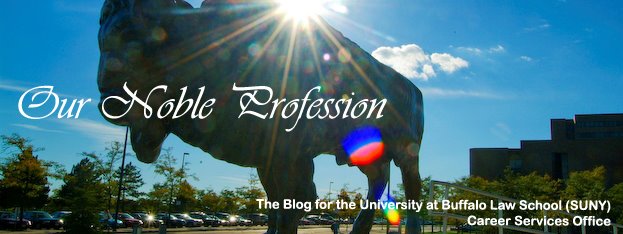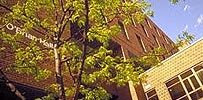 “A good lawyer knows the law. A great lawyer knows the judge.” ~Anonymous
“A good lawyer knows the law. A great lawyer knows the judge.” ~Anonymous Yesterday, April 29, 2008, the CSO hosted three guest speakers to talk about the job details, reasons to clerk, the process of applying, and tips on making yourself an attractive candidate. I won’t try to recap the whole program here. For details, and to listen to the panel, go to the Career Services Lecture Series site.
To boil it down, here some great reasons to consider clerkships:
- Prestige: There are few jobs that carry the pure caché of a judicial clerkship.
- Career Boost: Almost any legal employer loves to hire law clerks because of the research and writing skills you develop, your inside knowledge of the court system, and simply because it looks good for them to have a lot of former clerks.
- Money: Even though clerkships are government jobs and pay accordingly (but not too badly these days), many law firms offer signing bonuses (quite large ones, according to the New York Times) for associates coming off clerkships.
- Short time commitment: Term clerkships last only one to two years.
- Satisfaction: Clerks are able to produce very robust, high-quality, cutting-edge and challenging work without the pressure of billing.
- Relationships: As a clerk, there is a very small group of people in your court that you can discuss your cases with. Judges, clerks, and other court personnel develop very significant personal connections that last a lifetime.
- Accessibility: When you consider Federal, State, trial court or appellate, magistrates, specialty courts, local and national regions, there are lots of opportunities for clerking, even if you think your grades might not be high enough. Give it a shot!
For more information and resources, check out Dawn Skopinski’s CSO Bibliography (go to page 70, but browse around while you’re there…) The application process can be overwhelming to start with, so check in with the CSO for help! This year, for the first time, the CSO will be paying postage for any snail-mailed clerkship applications! Watch for announcements!











